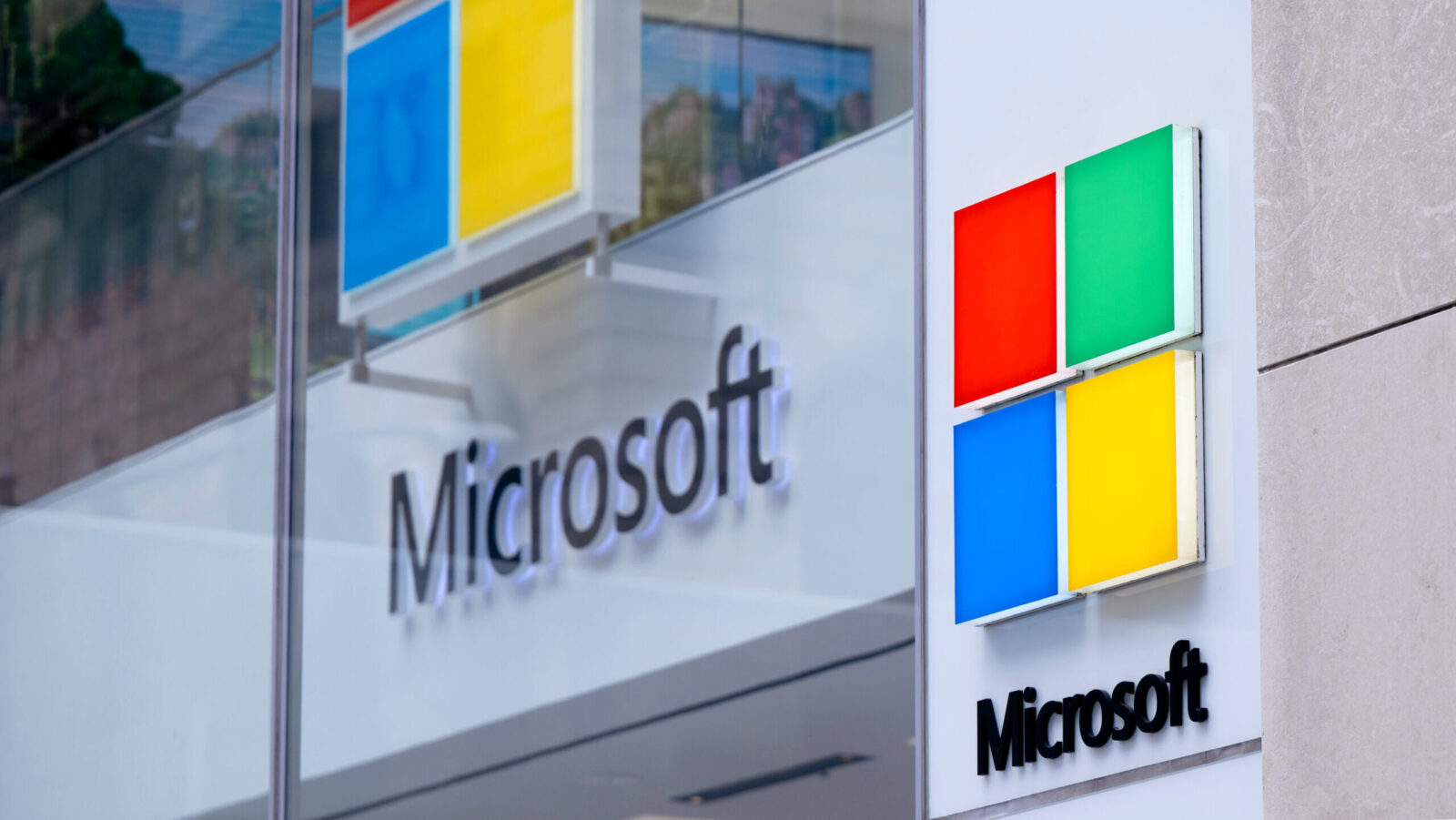Good morning.
“iPad Kids” are giving way to a new generation of “AI kids.” At least, if Elon Musk has his way.
On Monday, the xAI CEO announced that the company was working on a “kid-friendly” version of its Grok artificial intelligence chatbot, which he dubbed “Baby Grok.” Of course, regular old Grok isn’t exactly the most mature conversation partner to begin with (and that’s underselling it). Just two weeks ago, an update to Grok caused an international controversy after the chatbot started spouting antisemitic conspiracy theories while calling itself “MechaHitler.” xAI went on to apologize for Grok’s “horrific behavior” and blamed since-removed “deprecated code” in the update for posts that “contained extremist views.” Suddenly, obsessively playing Crossy Road seems like a somewhat healthy use of a 6-year-old’s time and attention.
Microsoft Stock Unfazed by Hack Threatening Thousands of Customers

Over the weekend, Microsoft made the extraordinary disclosure that one of its key workplace software products was under attack from hackers, potentially exposing the data of thousands of companies and government agencies worldwide.
On Monday, that seemingly apocalyptic scenario meant shares in the venerable Seattle-area tech giant were … just fine, rising 0.1% as experts warned of a veritable cornucopia for ransomware gangs.
The Keys to a Problem
If you’ve never worked at a job that required ties in the office and/or you’re Gen Z, there’s a decent chance you have a strong aversion to Microsoft products. However, being outré or hip isn’t what makes a corporation like Microsoft, with a market capitalization of nearly $3.8 trillion, the second-most valuable company on the planet. It’s being the world’s largest software maker, whose products are the backbone of workplaces worldwide.
It’s also why corporate IT managers from Houston to Helsinki had their weekends wrecked when Microsoft said its SharePoint software was under attack. Some 250,000 organizations use the software designed for building intranet websites, sharing files between employees and storing internal information, otherwise known as stuff you don’t want hacked. In good news, the vulnerability exploited by the attack only affects on-premise SharePoint servers, meaning companies using the cloud version of the software are unaffected. Security updates to eliminate the vulnerability were made available on Sunday for the most recent and 2019 versions of the software (although the 2016 version is still awaiting its own update). In bad news, this may well amount to too little, too late in many cases:
- Researchers at Eye Security noted that breaches could allow malicious hackers to harvest passwords and access cryptographic keys, which would enable them to gain access to systems even after they’re patched. (Buy your IT guy, who will have to update the way future keys are encrypted, a beer at the next work social if you’re a SharePoint company.)
- Eye’s researchers scanned more than 8,000 SharePoint servers worldwide and found that the attacks, which likely began on July 18, compromised more than 50 servers, including those of a major US energy company and multiple European government agencies. (Two US federal agencies were impacted, too, The Washington Post reported.) There is no undoing the theft of materials already stolen.
Taking Stock: Microsoft has been at the center of several damaging breaches in recent years and the general response from markets, since the bad publicity has never been enough to imperil the company’s dominant market share, has been a yawn. Last year, for example, the company’s own email system, including the accounts of senior executives, was compromised by a Russian hacker group just a few months after another Microsoft breach resulted in tens of thousands of emails being stolen from the US State Department by Chinese hackers. In fact, analysts were salivating over the stock last week as the company prepared for its July 30 earnings release. BofA, Deutsche Bank, Cantor Fitzgerald, Mizuho Securities, TD Cowen and Wells Fargo all raised their price targets on the shares, which are up 21% this year. Maybe there really is no such thing as bad publicity.
Keep More Of Your Returns With Automated Tax Tech

Even in strong markets, taxes can quietly chip away at your returns. Betterment’s automated tax-saving technology helps reduce that drag, which can help you keep more of your money.
Here’s how Betterment helps:
- Tax loss harvesting scans your portfolio for opportunities to offset gains with losses, potentially lowering your taxable income.
- Strategic asset placement helps shield high-growth assets in tax-advantaged accounts where they can grow more efficiently.
- Real-time tax previews give you insights into potential tax consequences before you transfer, sell or rebalance.
It’s like having a tax assistant working behind the scenes all year round, not just during tax season.
Taxes are a cost to investors. Betterment helps you manage that cost through automated investing tech and strategic planning.
Block Stock Pops in S&P 500 Debut
On Monday, Jack Dorsey’s sprawling fintech empire Block became the new kid on the block at the S&P 500, taking a spot left vacant by Hess’s merger with Chevron.
Its membership in the elite index comes as the company transitions into an all-in-one finance platform, though its ambitions may belie a slightly more complicated reality.
Don’t Be a Square
Block has been a rather ubiquitous part of the payments ecosystem for a while now, from powering morning coffee purchases via Square’s payment systems to helping friends split the bill of said morning coffee purchases via the peer-to-peer payments platform CashApp. The company also has a buy now, pay later service called Afterpay, for the installment-inclined and plenty of crypto functionality for the blockchain-inclined. More recently, however, the company has begun pushing into every corner of personal finance, with moves such as offering CashApp debit cards and, after receiving FDIC approval earlier this year, offering loans directly through Cash App.
Taking a spot in the S&P 500 is a stamp of approval and legitimacy for the fintech firm. But the problem with offering typical financial services outside of the traditional finance world? It tends to attract clients with less cash to spare who are, consequently, more vulnerable to economic challenges, as evidenced by the company’s most recent earnings report in May:
- In its earnings call, Block reported revenue of $5.8 billion in the first quarter of the year, well below analysts’ expectations of about $6.2 billion and marking a 3% year-over-year decrease. The company also announced weaker-than-expected full-year profit guidance.
- The dip was largely due to lower-than-expected payment volumes across its Square and CashApp ecosystems, particularly in discretionary spending categories such as media and travel.
The dour results stood in stark contrast to those of more traditional firms in the payments sector, including both major banks and prominent credit card companies, whose customers have proven resilient this year. “[Block] saw softness in discretionary,” Adam Frisch, senior managing director at Evercore ISI, told Bloomberg after the earnings report. “That is the first time we heard that on any earnings call this quarter.”
On the Chopping Block: May’s poor showing fueled a brutal 20% share-price skid, on top of a 30% year-to-date drop before the call. Monday’s S&P debut helped reverse the trend somewhat, with Block’s stock popping roughly 7% before market close (it’s still down around 10% year to date). Meanwhile, some point to increased lending as adding complexity and risk to the company’s business, given its client base. “If we’re going into a downturn lending to a consumer cohort that makes less than $100,000 on average, that’s not a great way to resuscitate your earnings,” Frisch told Bloomberg.
What 100,000 Financial Advisors Already Know. Clients expect more. AI, crypto and new regulations are reshaping wealth management. Advisor Upside delivers sharp, twice-weekly insights on markets, tech and practice growth — helping you stay ahead. It’s trusted by 100,000+ advisors and powered by The Daily Upside. Stay informed. Adapt fast. Subscribe free today.
MicroStrategy Bolsters Its Bitcoin War Chest
Fitting, given its recent name change, Strategy — the Michael Saylor company formerly known as MicroStrategy — is thinking really, really big when it comes to bitcoin.
On Monday, the company, a self-styled business intelligence and cloud-based services firm, announced that it had purchased 6,220 bitcoin worth $739.8 million last week. That adds to an already massive stockpile. Massive enough, in fact, that the company now owns roughly 3% of all bitcoin in circulation.
Bit by Bit
In total, Strategy owns 607,770 coins, worth roughly $72 billion as of late Monday. That’s enough to make Strategy the world’s largest corporate owner of the preeminent cryptocurrency, and is the result of a buying strategy (pun intended) that began back in 2020 as the firm sought a hedge against inflation. Along the way, Strategy has funded its bitcoin buying spree by issuing a combination of common and preferred shares, as well as via debt (case in point: the company said last week’s bitcoin purchases were fueled by the proceeds of a roughly $740 million share sale, the vast majority of which were common shares).
The gambit by the so-called bitcoin treasury appears to be paying off so far:
- Shares of Strategy have soared roughly 3,500% since the company began its bitcoin-buying campaign, while the price of bitcoin has soared some 1,100% over the same time.
- That compares with a measly 120% rise in the overall S&P 500 during the same time, according to a recent Bloomberg analysis.
Coming Attractions: The timing of Strategy’s latest bitcoin gains was hardly a surprise. Last week also marked “Crypto Week” on Capitol Hill, with a flurry of pro-crypto industry bills passing in the lower chamber of Congress. Meanwhile, federal officials have been pushing Fannie Mae and Freddie Mac to consider crypto holdings in their mortgage risk assessments, further legitimizing the digital currencies. It’s no surprise, then, that Saylor has already hinted at what the company plans to do next: buy more bitcoin.
Extra Upside
- Undiplomatic: China confirmed it has blocked an Atlanta-based Wells Fargo banker from leaving the country, claiming the move relates to a criminal case.
- Easy as Pie: A winner from increasingly distressed consumers eating out less is Domino’s Pizza, which beat analysts’ sales expectations in its latest quarter, thanks to US customers ordering delivery and takeout.
- 9 Days Left To Invest. The world produces 450M tons of plastic waste every year. That’s why Timeplast invented a water-soluble plastic that vanishes without harming the environment. Invest in Timeplast by 7/31.**
** Partner
Just For Fun
Disclaimers
*Betterment is not a licensed tax advisor. Tax Loss Harvesting+ (TLH+) is not suitable for all investors. Consider your personal circumstances before deciding whether to utilize Betterment’s TLH+ feature. Investing involves risk. Performance not guaranteed.
**This is a paid advertisement for Timeplast’s Regulation CF Offering. Please read the offering circular at invest.timeplast.com.

